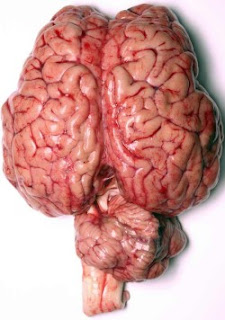Brain Damaging Habits You Should Stop Immediately
Brain Damaging Habits You Should Stop Immediately
The brain is made up of mainly neurons. The brain is responsible for almost every function in our body. This includes anything that has to do with regulating hormones, breathing, circadian rhythm, muscle control, heart beating, coordination, critical thinking, emotions and much more.
It goes without saying that the brain is one of the most energy demanding organ in our body. It’s estimated that the brain by itself eats up almost 20% of our body’s total calorie intake. And that number can vary based on age, gender, size and how much brain power you actually use throughout the day.
Since the brain is responsible for so many things, you’ll want to have it work at its optimum performance until when its time to sleep.
Brain Damaging Habit You Should Stop Immediately
1. Working through illness
It harmful to the brain to work when you are sick. Its essential that If you aresick, rest and eat properly. There is almost nothing that can’t wait a day.
When you are ill—even with a simple cold—your body’s immune system is already working at full capacity to fight the infection.
You will not only prolong your illness but increase vulnerability to subsequent maladies, with cumulative effects that can impair brain function
2. Sleep Deprivation
If you deprive yourself of adequate sleep, your memory will suffers. Your brain is as active while sleeping as while awake. Two of the critical activities that take place while you sleep are the long-term storage of memories and daily housekeeping, eliminating toxins.
Without enough sleep, your memory suffers and you run a much greater risk of neurodegenerative disease due to plaque accumulation.
1. Boredom
Neuroplasticity is the ability of the brain to think in different ways, make new connections, and retain memories. Without intellectual stimulation, your brain—like any other organ—will atrophy
2. No Breakfast
It’s not just something your mother used to nag you about: breakfast is the most important meal of the day. Without it, not only will you feel sluggish but your brain—that’s revving up for another busy day—hasn’t been fed in many hours. Running on empty without proper nutrition day after day will cause your metabolism to slow and your brain to shut down some functions—permanently.
In addition, a Japanese study found that people who routinely skip breakfast are thirty-six percent more likely to suffer a brain hemorrhage. Many studies support the observation that the brain performs better if properly nourished every morning; from a professor of pediatrics at Duke University:
“Without glucose our brain simply doesn’t operate as well. People have difficulty understanding new information, [they have a] problem with visual and spatial understanding, and they don’t remember things as well.”
3. Cell phones
This is one of those controversial subjects for which you can find studies landing on both sides of the issue, depending on the particular bias of the research.
Electromagnetic fields exude radiation and we know that exposure to radiation in close proximity and for extended periods is detrimental to human health. At the very least, sleeping with your cell phone next to your bed is distracting and can disrupt sleep.
A Swedish study found that the radiation from a cell phone can also cause headaches and confusion. Another recent study established a definite link between cell phone radiation and cancers, including brain tumors.
Use a headset and limit cell phone use, turning it off and putting it as far away from you as possible as often as possible.
4. Over-eating
Over-eating leads to excess weight, often to obesity. And we’re not talking about splurging on kale.
Often when someone eats more than is necessary, the food that’s taken in is lacking in nutrition; the body remains hungry because it’s not getting what it needs in the form of nutrition and so we eat more.
Nutrient-poor foods do not optimize brain performance. In addition, chronic obesity has been directly associated with low brain volume and dementia.
5. Smoking
Cigarettes contain a host of toxic chemicals, many adversely affecting the brain. From 2004 research:
“The study found that cigarette smoking alone caused damage to neuronal viability and cell membranes in the midbrain and on cell membranes of the cerebellar vermis. These brain regions are involved in fine and gross motor functions and balance and coordination.”
Best to quit before you start drooling. The good news is that the body is extraordinarily resilient and most of any damage caused by smoking will be repaired over a relatively short time.
6. Air pollution
The air we breathe is full of harmful particles that affect all facets of the human condition. Air pollution has been found to cause brain shrinkage and cognitive impairment, amongst other things. What we breathe and absorb through skin moves through the bloodstream, permeating every organ—including the brain.
